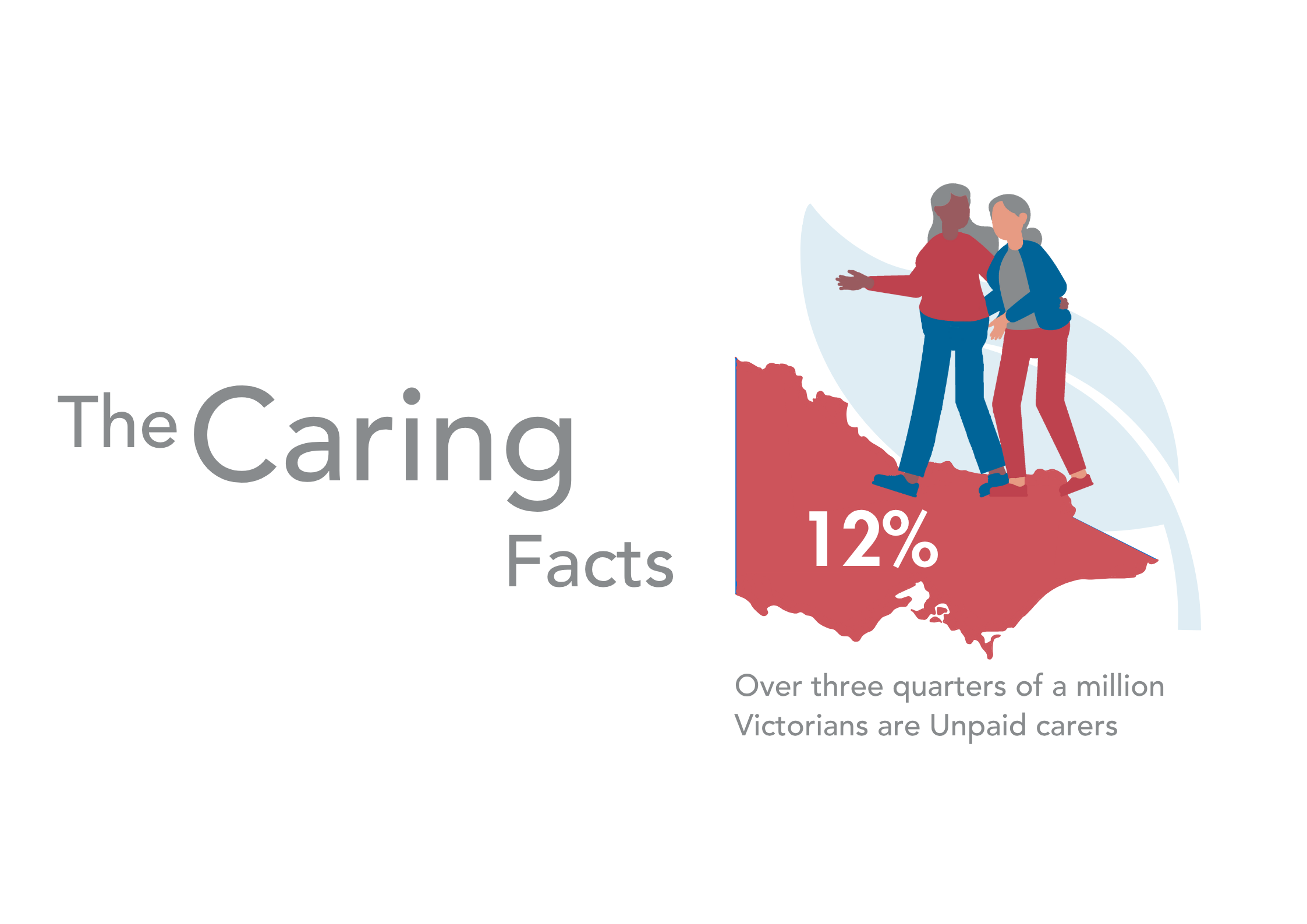
There is a broader and multi-dimensional definition of care beyond labour which cannot be measured solely in monetary terms.
There have been several studies which find caring has a major impact on carers, with many needs remaining unmet.
Direct and indirect costs incurred because of caring impact a carer’s own standard of living.
They are experiencing high levels of financial stress and are unlikely to have financial reserves to endure unexpected expenses.
Victorians provide unpaid care and support to family or friends.
Of the state's population are unpaid carers.
Victoria’s carers live in outer regional or rural areas.
Of Victorian carers under 25 years of age.
Care for an immediate family member or relative.
Provide unpaid care for two people or more.
Of Victorian carers report living with a disability themselves.
Of Victoria’s unpaid carers were born overseas.
Are primary carers who provide
the most assistance.
Of primary carers in Victoria are female.
Of primary carers do not participate in paid work.
Of primary carers provide over 40 hours of unpaid care per week.
The economic contribution of carers in Victoria, while often overlooked in traditional economic metrics like GDP, is staggering. It can be broken down into several key areas:
In essence, the economic contribution of carers in Victoria is immense, acting as a critical, albeit often invisible, pillar of the state’s social and economic infrastructure. While their direct financial remuneration is minimal or non-existent, the cost of replacing their services and the foregone economic activity they incur are significant, underscoring the urgent need for greater recognition and support for these essential individuals.
Of respite, education, events and assistance delivered to carers
Delivered to rural & regional carers
allocated to 168 Carer Support
Groups, reaching over 3000 carers
By our Carer Advisory Service

